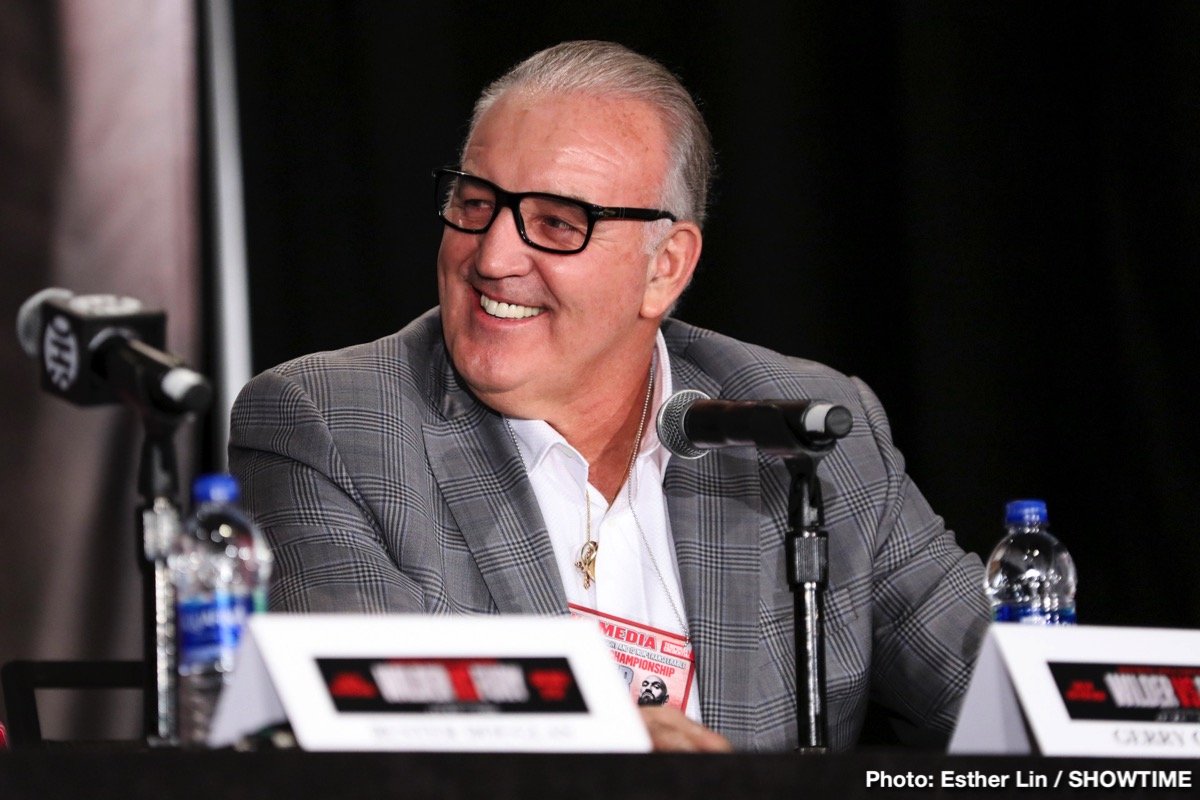Gerry Cooney, who is far happier in retirement than he ever was in the ring, celebrates his 67th birthday today. The 1980s superstar (and he was, absolutely, for a short time at least) is one of the good luck stories in terms of how an ex-fighter can live into early old age with his health, his money, his popularity, and his reputation intact. Cooney may have failed to win the big one, as in the world heavyweight title, but his has been a most successful life all the same.
Cooney, however, was unlucky in his career in that he was fighting at a time when there was a truly great and dominant heavyweight champion in Larry Holmes who was ruling the world. Indeed, had Cooney been born at a different time, he may well have won at least a version of the heavyweight crown. But Cooney had to go through Holmes to reach the mountain top, and he fell short. Still, Cooney’s power is the stuff of legend, the power he packed with his vaunted, celebrated left hook especially. Holmes, though, knew too much for Cooney. While by the time he got his second and final shot, this against Michael Spinks, Cooney had been battling drink and drugs for far too long and he had lost plenty of his zip, to say nothing of his focus and ability to think clearly in the ring.
But for a while, in 1980, 1981 and 1982, Cooney, dubbed “The Great White Hope” (this a tag Gerry disliked immensely) thrilled fight fans as he closed in on what was widely viewed to be a winning shot at the title. Cooney’s stirring KO wins over faded big names Ron Lyle and Ken Norton were brutally impressive (the near decapitation job the towering Irish-American did on former champ Norton in particular), as was his battering of a bloodied Jimmy Young.
Born into a tough-love family in Long Island, Cooney, like so many others, found himself with boxing. Making rapid progress, the young Cooney won numerous amateur accolades and titles, including two New York Golden Gloves titles. Going pro in February of 1977, guided by Dennis Rappaport and Mike Jones (later dubbed “The Whacko Twins” by the media) and trained by Victor Valle, 20 year old, naturally left-handed Cooney was soon a fan-fave.
The big thing that Gerry feels today held him back, was inactivity. Not wishing to sign with Don King, who then held an emperor’s grip on the heavyweight division, with almost all the top contenders signed up, Cooney was unable, he says, to get a decent fight. The inactive periods were substantial, with Cooney undergoing some seven months out of action after his big win over Lyle, and then a whopping 13 months out after his crushing of Norton.
And so it was that, when he got his shot at Holmes, Cooney, still only 25 years old and just 25-0 as a pro (with Gerry having boxed a little over 80 rounds to get there) was rusty and lacking in experience. Still, Cooney, in one of the most heavily hyped heavyweight title fights of all-time, put up a great fight, battling a near-peak Holmes for 13 tough rounds in sweltering Las Vegas.
But Cooney lost and he was never really the same again. Cooney felt he had let his fans down, and this bugged the hell out of him. Amazingly for a fighter who had shown so much promise, Cooney fought just five more fights after losing to Holmes. Spinks beat a worn-out Cooney in 1987, and then the comebacking George Foreman ended Cooney’s own brief 1990’s comeback in January of the first year of the new decade.
But Cooney left the ring with peace and a sense of fulfilment. He had gotten himself clean and sober and he exited the ring, for good, with the knowledge that he gave it his best shot. And, unlike too many other, far more successful fighters we could list, Gerry kept hold of his money, this by making smart investments and by living a good, honest and clean life.
Cooney is rarely seen without a smile on his face these days, this a far different look to the one he wore when he was fighting, when he was carrying so much pressure on his enormous shoulders. Cooney got out in one piece, and he is happy about it. Cooney also continues to be a great puncher who has fans having a ‘what if?’ feeling. Cooney could have/should have achieved more than he did, for sure.
But for a man who had just 31 pro fights, Gerry Cooney certainly did leave his mark on the sport.

